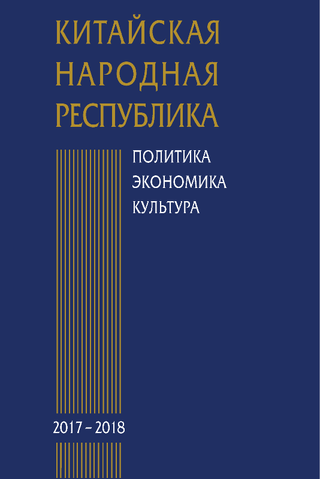?
Китайская Народная Республика: политика, экономика, культура. 2017—2018 : монография
This information-analytical publication highlights the PRC current development - the changes in its domestic and foreign policy and in socio-economic development, including legislation, party building, demographic policy as well as the economic achievements, pressing problems and challenges facing the PRC today. The articles of the collective monograph, reflecting the materials of the CCP 19th Congress (October 2017) and the sessions of the National People's Congress, including the most recent one (March 2018), discover the content of the new ideas, which will guide China in its further development, such as “The Great Revival of the Chinese Nation” and “The Community of the Shared Destiny of Mankind”, and specify the provisions of the “One Belt, One Road” initiative.
